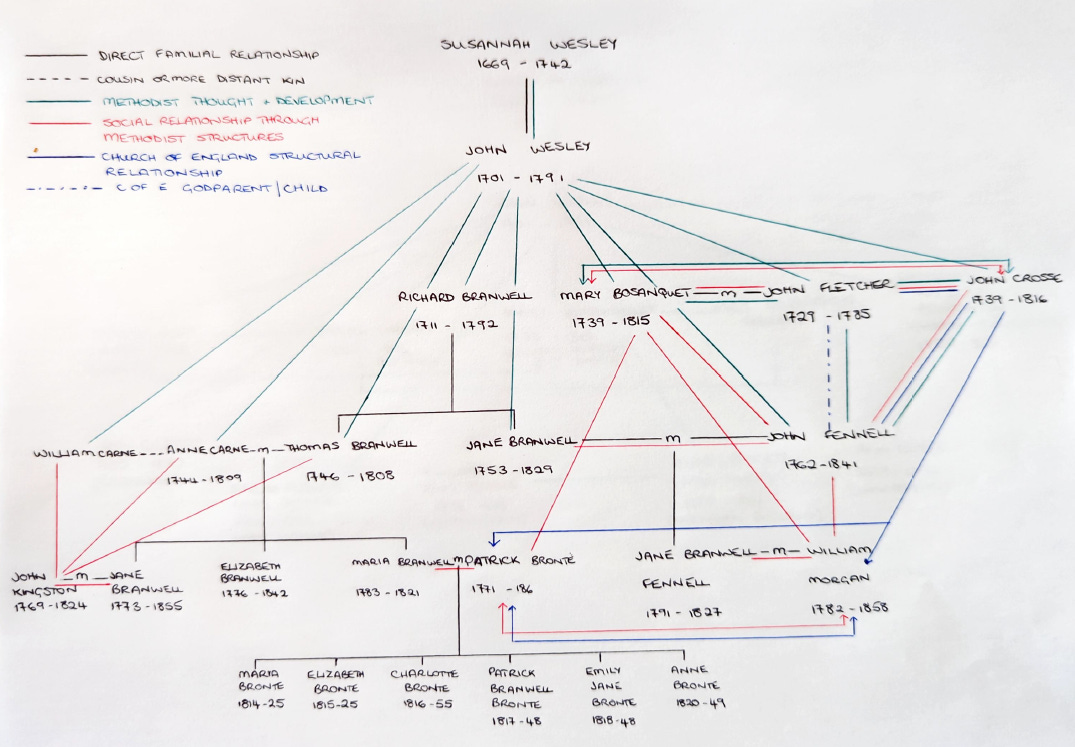What do the Brontë family and the Methodist movement have in common? More than you might think. In our latest episode of She Wrote Too, we had the pleasure of speaking with genealogist Dr. Sarah Halton, who has been tracing the intricate and often surprising connections between the Brontës and Methodism. Diagrams are provided below!
Most of us think of the Brontës as being firmly rooted in the Anglican tradition. After all, their father, Patrick Brontë, was a clergyman in the Church of England, and their home at Haworth Parsonage is steeped in the trappings of traditional Anglican life. But, as Dr. Halton reveals, the family's ties to religious nonconformity run deeper than many realize.
The Methodist movement, founded in the 18th century by John and Charles Wesley, was a powerful force in shaping the religious landscape of Britain. It was a movement that attracted working-class communities and emphasized personal faith, social justice, and education which are values that would have resonated with the Brontës. Dr. Halton’s research uncovers how Patrick Brontë’s early theological training and connections to evangelical circles may have influenced not only his ministry but also the intellectual and moral framework in which his children were raised.
This raises fascinating questions: Did the Brontës’ exposure to nonconformist ideas shape their literary imaginations? Can we see traces of Methodist themes such as redemption, struggle, and social reform in Jane Eyre, Wuthering Heights, or The Tenant of WIldfell Hall? And what does this tell us about the broader intersection of faith and literature in the 19th century?
Join us for this deeply engaging conversation as we explore faith, history, and storytelling with Dr. Halton. If you’re a fan of the Brontës, historical detective work, or the way belief systems shape culture, this is an episode that you will enjoy.














Share this post